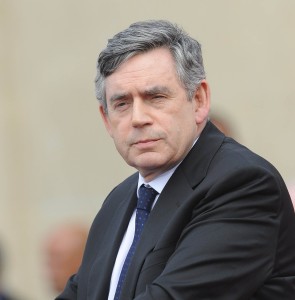British Politicians Go Live

This Thursday, British candidates are engaging, for the first time in the country’s history, in a televised debate, following the American campaign format and breaking a tradition of media disuse that has kept on-the spot charisma from playing a decisive role in past elections. Candidates – current Prime Minister and Labor Party leader Gordon Brown, conservative and poll favorite David Cameron, and underdog democratic liberal Nick Clegg – will answer 8 questions written by voters and selected by journalists.
With the kind of publicity expected – the estimated number of viewers will be around 20 million – comes the chance to alter voter sentiment quickly and exponentially, for better or worse. Gordon Brown has reason for fear, being known for being an unappealing speaker and often ill-mannered politician, while David Cameron has a sharp debating persona that has helped him gain an edge. For Nick Clegg, the event is less of a gamble, as exposure will be his biggest reward of the night – a good part of Britain has yet to acquaint itself with him at all.
Past British leaders like Margaret Thatcher were against televised campaigns because they had the potential to move elections away from policy issues and towards personalities. Perhaps as a reaction to such concerns regarding whether the intellectual aspect of the exchange will prevail, clapping, cheering and booing will be prohibited throughout the debate. Parties will have a chance to protest to network producers against choices – like camera angles or questions – that put candidates at a disadvantage.
Even with these reservations, the “personality campaign” that seems to have worked so successfully for Obama seems to have struck an appealing chord even in the hearts of British, hardly known for for sentimentality in the political arena.